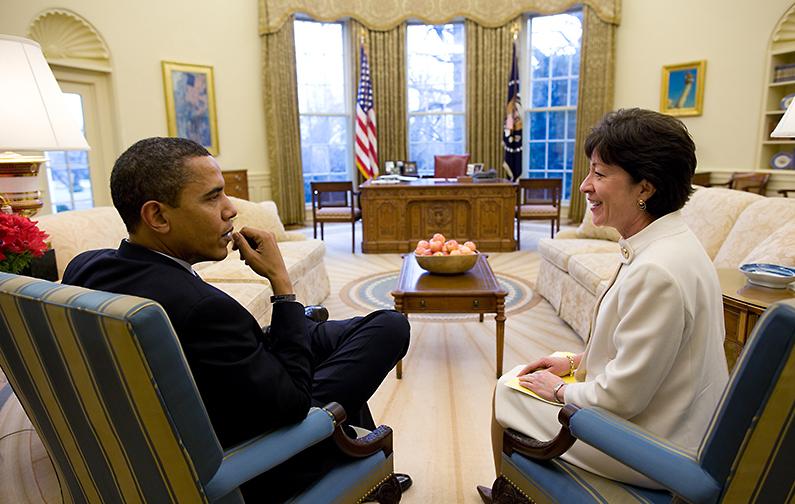Congress Was Not Really Briefed On PRISM
Next time, members of Congress should make sure to ask for a briefing about a program they have no reason to believe even exists.

“Every member of Congress has been briefed on this program,” said President Obama last week in his response to the revelation of PRISM, the massive government surveillance program. This was scary! All of Congress–435 voting House members, 6 non-voting House members, and 100 senators–knew about this? How can we trust anyone?
But NPR investigated this by actually talking to members of Congress, including Representatives Keith Ellison of Minnesota, Susan Collins of Maine, and Senator Jay Rockefeller of West Virginia, to find out when they were briefed, what the briefings entail, and how that whole situation works. Turns out Obama was being deliberately vague in his choice of words. In a previous unrelated interview, one representative told Fox News that congressmen “could have gotten a briefing whenever they wanted to”–but, asks Rep. Susan Collins of Maine to NPR, “how can you ask when you don’t know the program exists?”
The way these briefings work looks almost designed to keep people in the dark; members of the intelligence sub-committees in Congress are briefed, and the Obama administration claims there were a few general briefings for all of Congress, but Rep. Rockefeller claims these were confusing and unhelpful–that he would “come back knowing nothing.”
And if, for example, the members of Congress want more information or clarification, they’d have to specifically ask for an individual briefing. Assuming the member of Congress somehow guesses that they should ask about a program like PRISM, according to NPR, they’re brought into a secure room, not allowed to take notes or record the briefing, and given a brief, dense, jargon-filled presentation before being ushered out.
You can’t talk about what you just learned with someone who might be an expert on it, because 1) you might not remember all the details and 2) you’re just not allowed to do that, because the information is classified.
The Obama administration appears to have taken enough precautions to be able to claim that they aren’t hiding this information, while really making every effort to hide this information. And this doesn’t really excuse all of Congress; certainly there were at least a few members, particularly those on the intelligence sub-committees, who were briefed and understood what was going on and remained silent. But that’s not true of everyone.
Read more over at NPR.